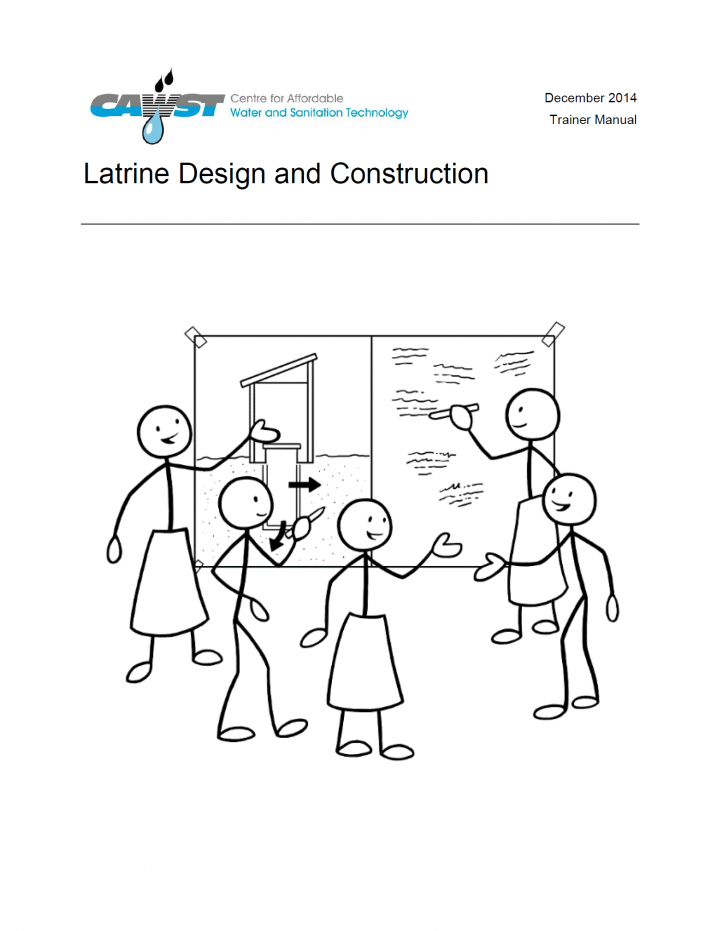Latrine Design and Construction Workshop (in English, French, and Spanish) CAWST (2014)
This collection contains the resources for both trainers and participants for the Latrine Design and Construction workshop. This five-day workshop is designed for latrine project implementers and masons. In this workshop, participants will learn how to design and construct latrines for low-income communities not connected to a sewerage system. The focus is on designing latrines that are technically and environmentally appropriate, and that people will actually want and use.
Upon completion of the workshop, participants will be able to:
• Discuss local and global issues and how sanitation is connected to the poverty cycle
• Identify pathogens related to sanitation and explain how to prevent disease transmission
• Discuss the five components of a sanitation system to properly manage human excreta
• Identify the parts of a latrine and describe their function
• Identify technology options for each latrine part and describe their basic design, advantages, and limitations
• Explain user-focused design and how it can be used to design latrines that people want and will use consistently and sustainably
• Calculate the required size of latrine pit
• Explain how to excavate and line a latrine pit
• Construct some basic latrine components, such as a slab, superstructure or pit lining
• Explain the factors to consider when siting a latrine
• Discuss different options to manage full latrines
• Describe how latrine sludge can be safely treated and used or disposed of
• Discuss the importance of handwashing with soap, describe the critical times and procedure for proper handwashing, and discuss the need for handwashing hardware and software
• Discuss latrine options for challenging environments such as areas with high groundwater, flooding, high population density, cold climates or fragile ecosystems
• Identify the materials required and basic costs to build a latrine
• Discuss the purpose of the project framework and describe the five components needed for a successful and sustainable sanitation project
• Establish a network of contacts with other project implementers
The following is a tentative list of the topics covered in the workshop. A specific agenda will be developed based on consultations with the organizer and participants. In general, one to two practical construction sessions listed below will be selected for each workshop.
Theory
• Local and global sanitation issues
• Pathogens and transmission of sanitation-related diseases
• Sanitation systems for managing human excreta
• User-focused latrine design
• Latrine parts and functions
• Selecting latrine technologies
• Designing latrine slabs
• Sizing, excavating and lining pits
• Siting latrines
• Emptying latrines and transporting sludge
• Treating, using and disposing sludge
• Handwashing with soap
• Estimating costs of building a latrine
• Introduction to the project framework
Practical
• Constructing latrine slabs
• Constructing a superstructure
• Constructing a toilet seat and pedestal
• Designing and sizing a latrine pit
• Excavating and lining a latrine pit
• Constructing a handwashing station
• Latrine design scenario exercises
• Next steps in project planning
Bibliographic information
CAWST (2014). Latrine Design and Construction Workshop (in English, French, and Spanish) Centre for Affordable Water and Sanitation Technology (CAWST), Calgary, Canada
Filter / Tags
EnglishFrenchSpanishTrainer manuals (adult learning)
External links
Latrine Design and Construction Workshop (Offered in French, English and Spanish)

